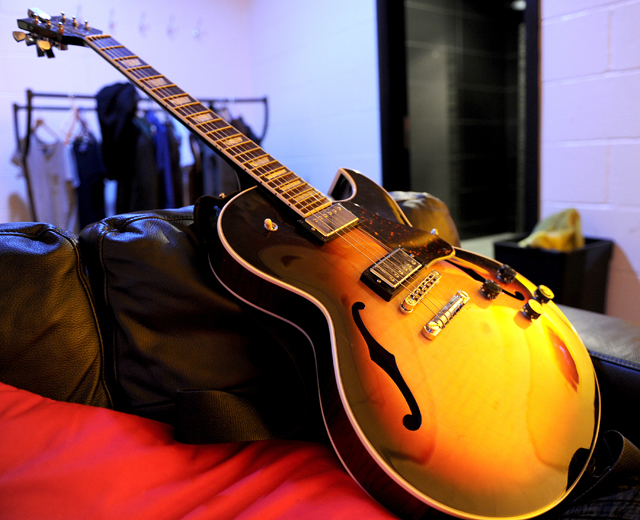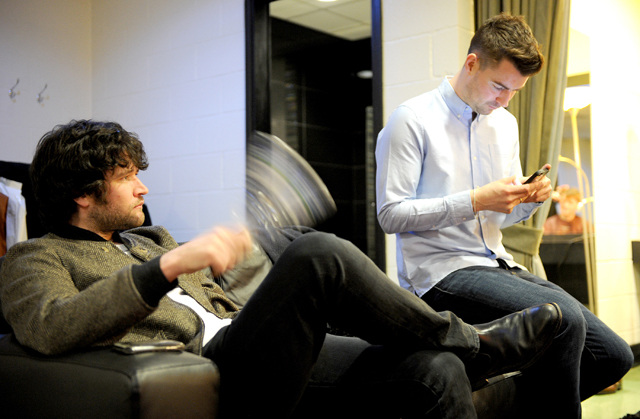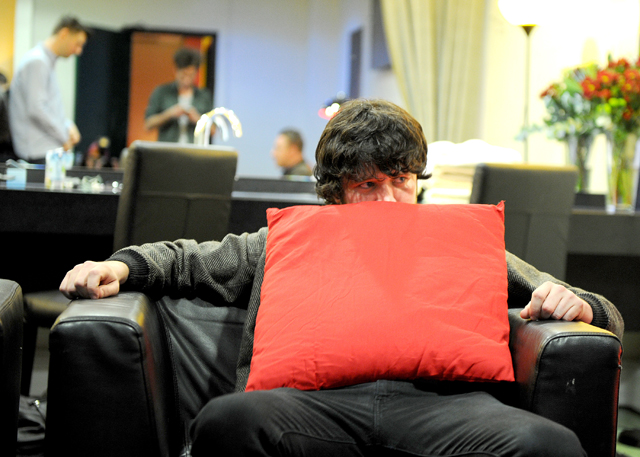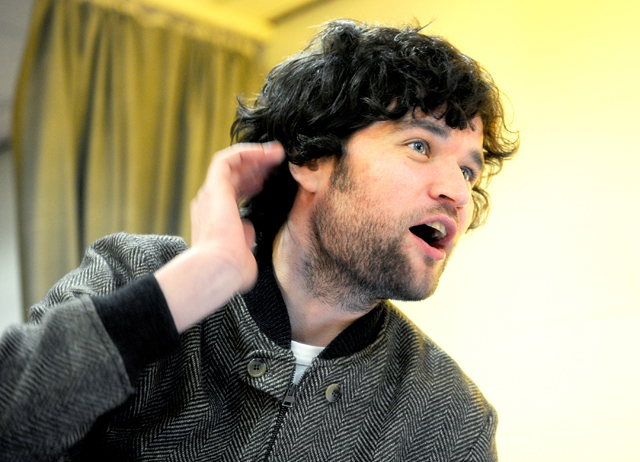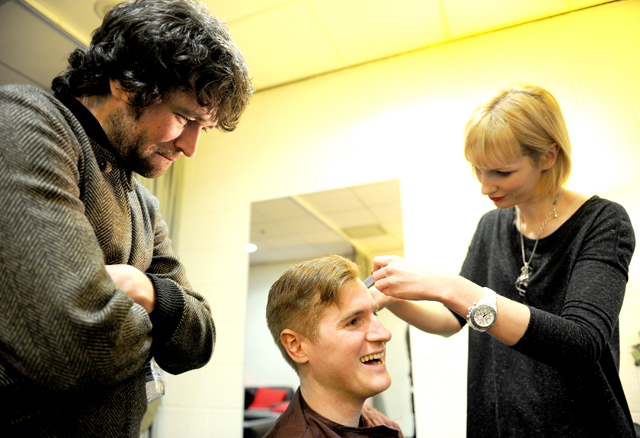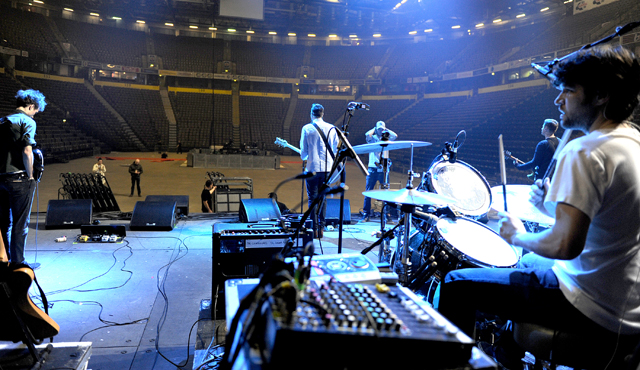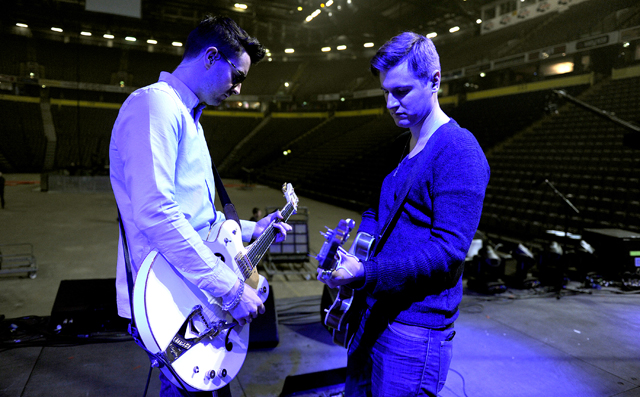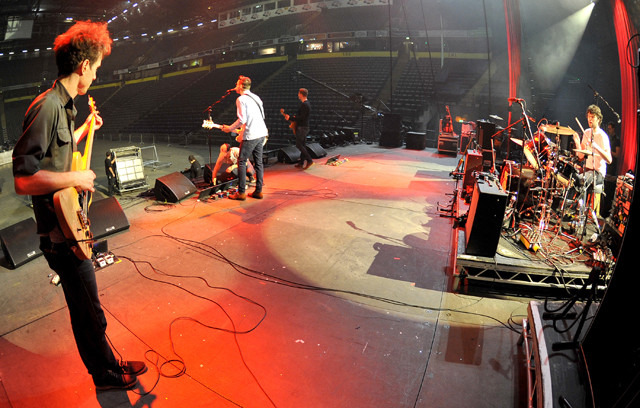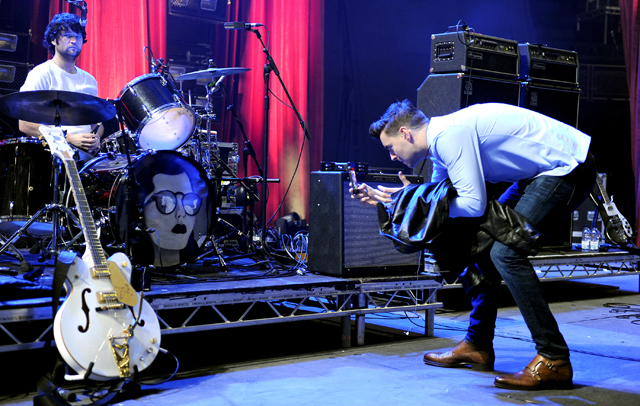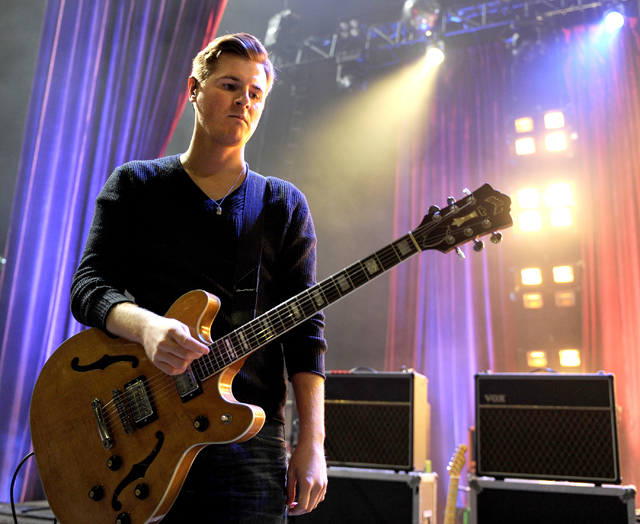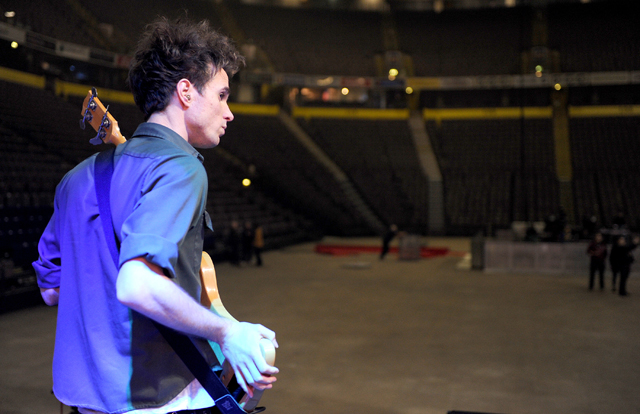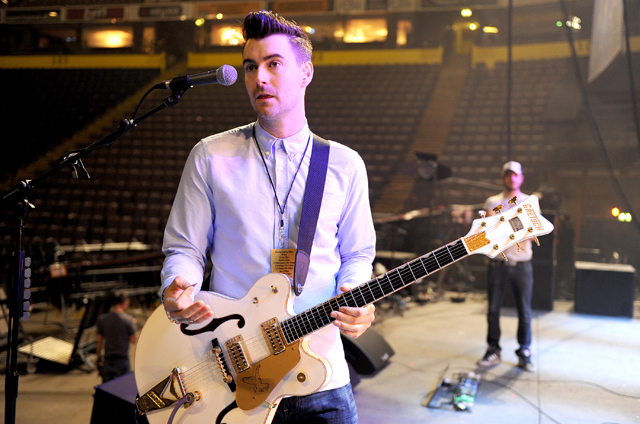"We're the biggest underground band in the world, the only people that know us are the ones that come to the shows". The indie world has changed since The Courteeners first arrived onto the scene, and Liam Fray knows it.
Breaking out in 2007 with a fresh, visceral take on their hometown's rock legacy, the Manchester quartet have built up a cult following over the last seven years through their relatable sense of approachability, a realness of sorts to their sound that has only developed through each of their three albums to date. Now, just 18 months after the release of Anna, they have returned with Concrete Love - a record we find was made somewhat unexpectedly.
"We just took a bit of time off between records so me and Joe went over to Paris with a home studio, because it's an amazing city but we've never really spent some significant time there..." explains Fray, on the phone from a flat in Manchester. "So we set up camp there really and took in the whole area, it was amazing, but then we came back with eight or nine songs which we weren't really expecting to be honest.
"Before we'd even toured the last record most of this one had already been written."

This sense of spontaneity has in a way been the best thing for The Courteeners, as it has seen them push their sound in the most poignant direction yet - with Concrete Love playing to their visceral strengths whilst also possessing a sense of intimacy and calculation. It's apparent early on that Fray is excited by the band's new style, intrigued by how it has made him change his creative process.
"I'm usually a perfectionist, like it can take me half hour to order a starter in a restaurant" he jokes, "so it was really cool to take a more relaxed approach, and it feels like there's a lot more breathing space on this record."
We begin to look at Concrete Love in comparison to their back catalogue, and it becomes clear that this change up in style has perhaps reinvigorated their sound whilst simultaneously taking things back to the roots, a move necessary for a group this far into their career: "Anna was so intense, polished and tight and we were aware of that, so we wanted this record to be more...human.
"Everything just felt really fresh and exciting, and it feels like this is our most exciting record, it's kind of the opposite of our debut because it feels unplanned."
We ask if there's a pressure to astound any more, or has being around for so long and building a loyal fanbase allowed the group more freedom in how their sound progresses. "I think if you take yourself seriously as a band you've got to push yourself, you can't just rest of on your laurels." he admits, "It's easy to make your debut album four times, but who wants to do that?"
Looking at The Courteeners in comparison with the other bands that broke through at the same time makes for intriguing conversation, as rather than feeling animosity or jealousy because the likes of Arctic Monkeys and Kasabian are headlining festivals, Fray has instead used aspects of their success to better inform the direction his own band can go.
"Arctic Monkeys have crafted a blueprint really, creating five completely different records and they're not even 30," he says. "The Maccabees are the same as well, that third album has been a big influence on how we let songs breathe rather than just go all out frantic."
He seems equally accepting of new bands, and in fact seems fascinated by how the genre is changing with the string of young indie bands breaking through at the moment: "I think there is a healthy pressure to keep one eye looking over your shoulder, and you should definitely be aware of what your peers are doing."
Despite this though, Fray is anything but worried about The Courteeners' future, and the strength of Concrete Love as an album justifies that, cementing the band's role as a perhaps lesser known, but still important band in the developing indie world.
"I think a lot of people wrote us off early on, which was fine, but I don't think we're making up the numbers anymore, we're here to stay now," admits Fray. Harking back to that 'underground' comment Fray made earlier, it's perhaps easy to forget how big The Courteeners actually are, a point the frontman puts down to diminished mainstream support for the group as well as geographical bias.
"It's odd really, because every time we play London we play the Brixton Academy, but people always gloss over it." he begins, "I don't really understand it because if a London band sold out that same venue every year you wouldn't hear the end of it, and nobody would go "oh but that's because they're a London band", but we sell out arenas in Manchester and people say "it's only because they're from there". Nevertheless, he goes on to argue that the band's sound would have developed very differently if things were easy "We've done well to connect with so many people thus far really, and I like the struggle of it all to be honest."
If Concrete Love is anything to go by, The Courteeners' struggle will no doubt be lessened for years to come, as one gets the feeling this band are really hitting their stride with an interesting new direction, whilst remaining equally humble about their future.
"There's room to grow but it's not a goal of ours to get a number one or headline festivals, it's more about developing your sound in the right way to make records that will still stand up in ten years time."
Concrete Love is out now, whilst The Courteeners will be headlining the NME/Radio 1 stage at Reading and Leeds Festival next weekend (22-24 August). For tickets and more information, visit visit here.
Below: Exclusive photos of The Courteeners live at Manchester Arena





